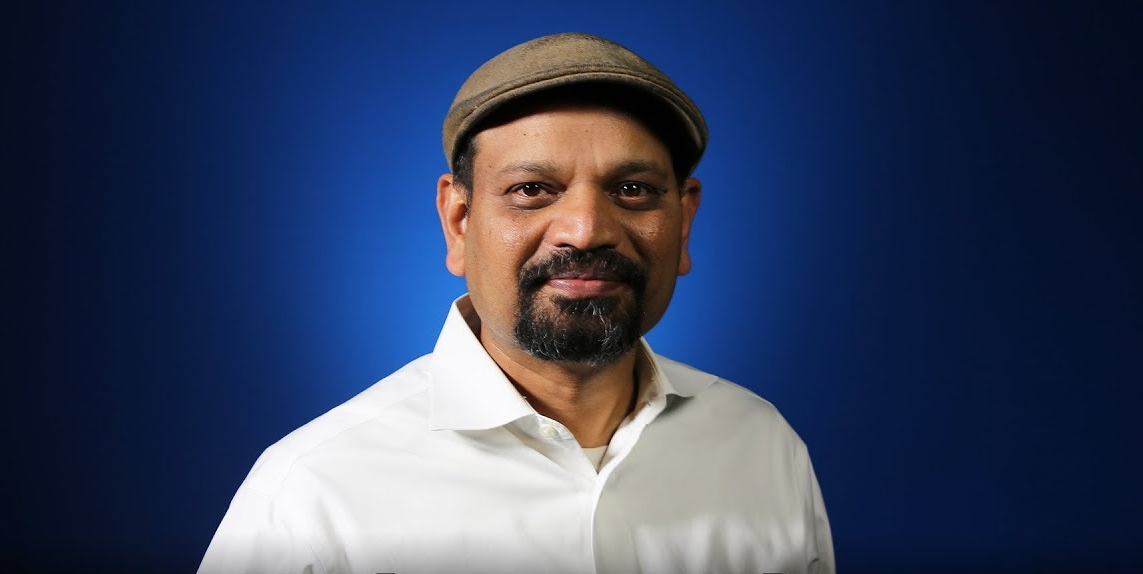 AI
AI
 AI
AI
 AI
AI
Artificial intelligence has been used to recommend movies for personal viewing, filter email spam and guard against fraud. Can it also save lives?
H2O.ai Inc. offers machine learning and open-source AI platforms for organizations across many industries, including healthcare. To address challenges brought on by the global COVID-19 pandemic, the company is lending its AI expertise and platforms to find patterns in open health data sets, assist with hospital supply chain forecasts, and analyze population risk.
“We’re working with local healthcare communities to begin predicting how staffing in hospitals would work, how many personal protective equipment and ventilators would be needed,” said Sri Satish Ambati (pictured), co-founder and chief executive officer of H2O.ai. “Many of our customers are beginning to use these models and iterate and improve and educate the community to practice social distancing. That led to a lot of flatlining the curve, and when you flatline the curve, you’re really talking about data science and analytics.”
Ambati spoke with Dave Vellante, co-host of SiliconANGLE Media’s video studio theCUBE and chief analyst of Wikibon, SiliconANGLE’s sister company. They discussed the impact of data analysis on economic forecasts, AI’s growing influence across industries, business models in the open-source world and the technology’s role in the decade ahead.
As an open-source software company, H2O.ai has been enlisting the support of data scientists globally, such as Kaggle Grandmasters and Masters, to mine open health data sets and generate predictive modeling for governments, the private sector and healthcare providers.
“We put them to work collecting data sets and making them more qualitative,” Ambati said. “There’s a tremendous amount of job loss out there. We’re figuring out which are the more difficult sectors in the economy.”
As countries around the world manage to slow the spread of the coronavirus, attention is beginning to turn toward the pandemic’s impact on the global economic picture. Institutions and research firms, such as the Brookings Institution, are employing AI tools to build models around what a post-COVID economic recovery might look like.
“No one country or community is symmetrical with other ones,” Ambati said. “In the U.S. you have a very highly connected world, a highly connected economy. We have quite a problem on our hands on how to safeguard our economy while also safeguarding life.”
The work of H2O.ai and other firms in the space highlight the growing importance of AI and machine learning in daily life. The technology’s adoption has followed the path of recent events as well.
In addition to providing assistance to healthcare providers and support for predicting economic impacts, AI has been used to enable live transcription of virtual meetings as much of the world’s enterprise work has shifted to video-based platforms.
“We’re seeing AI in every walk of life,” Ambati noted. “We reprice 20,000 corporate bonds every 15 seconds using H2O.ai. AI is the ultimate ‘moneyball’ in business.”
The business of AI is going through its own transformation as well. H2O’s stated mission is to “democratize AI, empowering every company to be an AI company” through a combination of open and closed-source platforms it offers to users.
Customers can use a product such as Driverless AI that offers an array of machine-learning models for particular tasks without requiring hiring a data scientist to make them work.
“We use the best practices of data scientists and combine them to essentially build recipes which allow people to build the best forecasting models, the best fraud prevention models, or the best recommendation engines,” Ambati said. “That has allowed ordinary companies to start producing models of high quality that would otherwise have been the pedigree of Google, Microsoft or Amazon.”
Driverless AI is licensed software, which means it is not free, although the CEO notes that his firm offers 150 open-source “recipes” on top of the platform. A majority of H2O’s revenues now come from its closed-sourced products, according to Ambati.
This mix of open and closed-source offerings at H2O speaks to the market lessons learned by entrepreneurs in the software world. Open source spawned a $34 billion success story with Red Hat Inc., and then there is also Hadoop.
“Open source is about freedom. It is not a philosophy; it is not a business model,” Ambati said. “If the product is very good, customers are self-sufficient. But if the product is crippled or difficult to use, then you put in a lot of services. You saw Hadoop get pulled into a lot of services, which is a difficult business to scale.”
In August, H2O announced a Series D funding round of $72 million, led by Goldman Sachs, which is also a customer. The company has tripled the number of customers since its previous funding round in 2017.
The past decade has been characterized as one when software ate the world. The current decade will be vastly different.
“AI is eating software,” Ambati said. “AI is essentially one of the biggest drivers for cloud adoption for many of our customers. And, in the enterprise world, you’re seeing rebuilding of a lot of data-first, data-driven applications that use AI. That is just the tip of the iceberg.”
Here’s the complete video interview, one of many CUBE Conversations from SiliconANGLE and theCUBE:
Support our mission to keep content open and free by engaging with theCUBE community. Join theCUBE’s Alumni Trust Network, where technology leaders connect, share intelligence and create opportunities.
Founded by tech visionaries John Furrier and Dave Vellante, SiliconANGLE Media has built a dynamic ecosystem of industry-leading digital media brands that reach 15+ million elite tech professionals. Our new proprietary theCUBE AI Video Cloud is breaking ground in audience interaction, leveraging theCUBEai.com neural network to help technology companies make data-driven decisions and stay at the forefront of industry conversations.